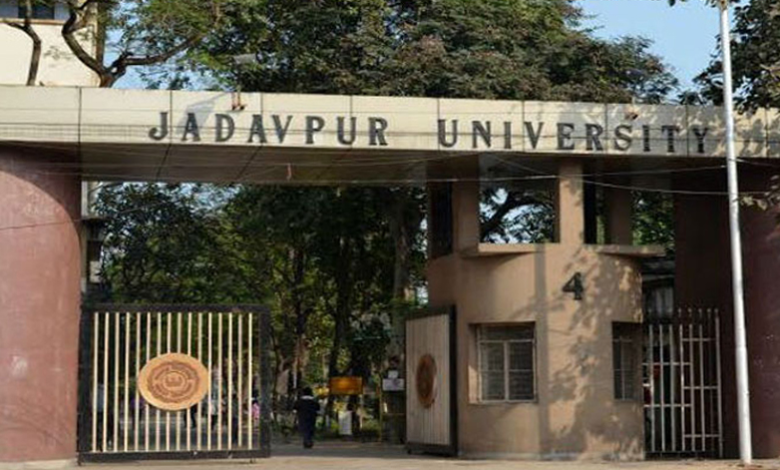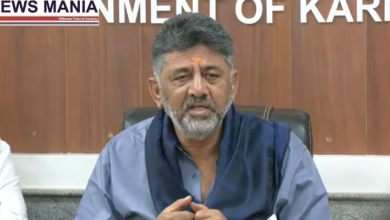Jadavpur University: Anguish Following Professor’s Complaint

Up to 35 students from Jadavpur University submitted a general diary request on October 18 to the Jadavpur police station, detailing claims of improper conduct made against a professor at the university.
The professor was accused of a plethora of offenses, including photographing female students without their permission, making inappropriate physical contact with them, making uninvited remarks about their appearance, clothing, physical characteristics, and social lives, and asking intimate questions and making remarks about which girl would be better as wife material and what size bed she would need with her partner.
The students provided written confirmation that they did not want a case, for the time being, the officer claimed, even though the OC insisted that he would be required to start one based on the letter of complaint’s substance.
Contrary to an FIR, a general diary does not necessitate the compulsory registration of a case.
The students claimed that seven or eight of them were present when the OC spoke to them inside the police station. They agreed to add the line because they had previously agreed to request a general diary entry and it would have been challenging to get in touch with the remaining 35 students to discuss the change in the complaint’s nature.
The police claimed they had asked the institution for a report on the conclusions of the university’s Internal Complaints Committee (ICC), which is looking into a different complaint made by the students on September 12.
The ICC is now hearing the case. The claims have been refuted by the professor. The publication of any material that could be used to identify the complainants is prohibited by law.
Usually, waiting for the investigation’s results is the wisest course of action. However, The Telegraph believes that key aspects raised by the testimonies of some of the students who approached it should be brought to the attention of decision-makers and subject-matter specialists who deal with such complaints.
On September 9, the students claim that the lecturer took pictures of them without their permission.
Three days later, on September 12, the students filed an inappropriate behavior complaint against the teacher at Jadavpur University. As a result, the university forwarded the issue to the ICC.
According to the current legal framework, the ICC has until December 11 (three months) to submit a report based on its investigation.
The students believe that the ICC treated them unfairly after two months and three depositions. Several students who spoke to his newspaper in confidence claimed to be losing faith in the ICC.
On October 13, the student was given a new date. A mail purportedly informed the student that the hearing had been postponed once more because the external member of the ICC was unwell a few hours before it was scheduled to begin.
The students felt uneasy as a result of the disrespectful approach, she continued.
On September 22, when one student was giving her deposition and another was about to arrive for her deposition, the student claimed the accused teacher was loitering around the building. She claimed that while the deposition was taking place, the teacher called one of the ICC members.
This newspaper was unable to get in touch with the ICC member for confirmation. In any case, it is against the law for ICC participants to speak to the media about the case.
The accused is in a position of authority on campus, therefore the committee needs to make sure that the complainants may air their grievances without being intimidated or fearful, according to a former university official who served as a member of its ICC.
Under the Prevention, Prohibition, and Redress of Sexual Harassment of Women Employees and Students in Higher Education Institutions Regulations, the University Grants Commission established the ICC.
According to UGC standards, an investigation must be finished 90 days after the complaint is received. The regulations state that the executive authority of the institution must receive the inquiry report and any recommendations, if any, within ten days of the investigation’s conclusion.
The regulations state that the committee’s duty is to assist any employee or student who chooses to file a complaint with the police.
The students’ concerns have been brought to the attention of policymakers and educators through their outspokenness.
One is that, while the ICC’s three-month term is in line with standards, it could not be enough time in a setting where careers can last decades. But three months constitute a sizable portion of the course for a university student.
The unacknowledged cost of keeping the students on edge for so long is that it hinders their academic performance and fuels worries about a cover-up and potential retaliation that may affect their future professional careers. This is particularly true of applied subjects where academics actively participate in off-campus projects that could have an impact on the students’ careers.
Two, aside from taking the customary — and proper — action of referring the case to the ICC and requesting that the accused teacher stay away from campus, for the time being, it doesn’t appear that much was done by the university to reassure the students. Additionally, it seems that the kids did not receive enough knowledge about the relevant legalities.
One of the students claimed they had written the department head on September 12 to request the suspension of the professor. The students claimed they had made at least 15 unsuccessful attempts to meet with the vice-chancellor. They also sent a letter to the VC as a result.
The students claimed that they had verbally been instructed to go to the police station and request a general diary entry, failing which the professor would be fired. On October 18, the students succeeded in doing so, but only after encountering new difficulties.
News Mania Desk






